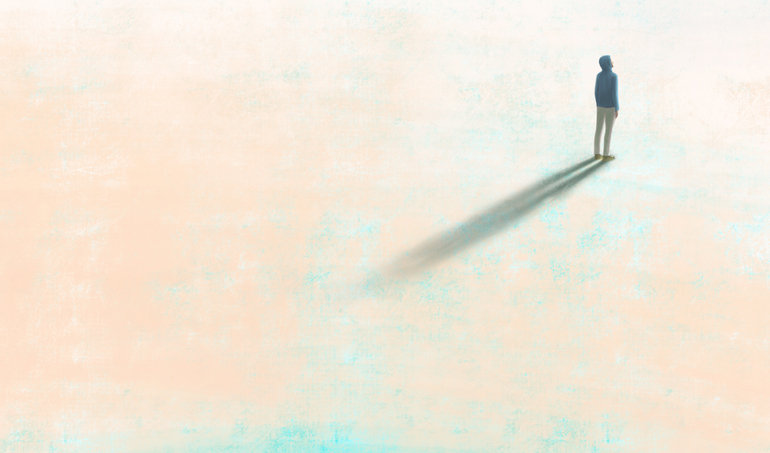Hallucinations and the endurance of unbearable torture
January 20, 2024
This article has been so difficult to write but I am convinced it needs to be said to open up discussion about how caring for the severely and progressively disabled proceeds in relation to any hallucinations that may come along as part of the disability. I am wanting to emphasize that treating and relating to people with severe and progressive disabilities means coming to terms with the very difficult issues of how our emotions, sub-conscious, conscious and related dreams and traumas are also caught up in very fluid chemical and bio-physical processes.
My name is Peter Gibilisco, I am 62 years old, and today my life is heavily influenced by Friedreichs Ataxia. It is a progressive condition that not only increasingly restricts physical movement as time goes on, but it does so in a way that is often unbearable. It has many other debilitating impacts, such as blindness and the horribly devastating effects of hallucinations.
Hallucinations have, at times, transformed my life to a massive extent. Under their impact, I find myself believing that there will be practical outcomesthat will result if I endure times of unbearable torture. Such times have been dominated by my physical and mental pain, which are also a side effect of my condition and of these hallucinations.
Surely hallucinations can vary, but for me they mostly consist in memories of previous actions. My hallucinations began around the time I was 55 years old. It was for me very much a prescription into fun and games. They could become erotic pleasures which, for me, was still possible. The advice I received from the psychiatrist of the Crisis Assessment and Treatment Team (CATT) at that time reminded me that I was still responsible, the one in control of my hallucinations. This made me feel good, even like I had discovered something of value, but unfortunately nothing could be further from the truth.
Back then, when I was 55 years old, I still had my eyesight, which could be part of the hallucinatory fun, and my sense of the pleasure I was having.But today, because of my blindness, the hallucinations lack what was a vital element and any pleasure is replaced by a sense of confusion. Everything is turned upside down. These days when I am hallucinating, any control I may exercise over the experience leads me into some truly weird paths, raising problems that defy any solution. I am left feeling very confused. To strive for answers to this situation that turns everything upside down, when I know that no probable solutions are available, makes me wonder what such life with such crazy experiences is all about. Am I a recipient of something special here, or what? For me, these times have only been the latest initiator of times of despair, leaving me in deep personal pain.
The likelihood that I cannot communicate about this weird state of mind leaves me spiritually exhausted with no way of finding a solution.The erotic side of my hallucinating has now receded, and I no longer have the feelings I had when I was 55 years old. Being left with no mobility throws a further spanner into the works, confirming my suspicion that I am no longer a member of society. When these hallucinations began, the CATTs advice was influenced by a medical assessment of Friedreichs Ataxia. And it was hard to find suitable cases in Australia of people who, of similar age and similar medical problems, had experienced similar problems to what I am going through. I seem to have been left on my own with this even though I have this small capacity to compose what has been written above.
However, today because of my blindness, a new spin has occurred from my hallucinations. When I was 55 years old, I used to be able to visualise with my hallucinations as they were not a hundred percent clear, and my hallucinating imagination was able to see others walk through objects around me. This gave me a weird feeling, and I was aware that it was something no one else could see. So how do I explain this to my support workers? Now taking it one step further, how do I explain the current situation that is with me being blind? A few times of late, I have been caught by my support workers saying, please stop, and this raises a very unbearable and almost impossible dilemma for me.
My hallucinations are something that I have no control over, they are mentally and physically exhausting. However, this leaves me pondering a question. Initially imposed by the CATT team. They said I was in control of my own hallucinations; this allowed me to monitor the thought, to think about it. Can I really be that smart? Am I able to outsmart myself to such a degree? This thought leaves me truly bewildered. Am I left with only a plea for help, a prayer as it were, which is all that I can offer?
Many thanks to my prolific ghost writer Bruce Wearne and to my special team of academic support workers Sarah, Dani, Amanda and Lina.
For more on this topic:

